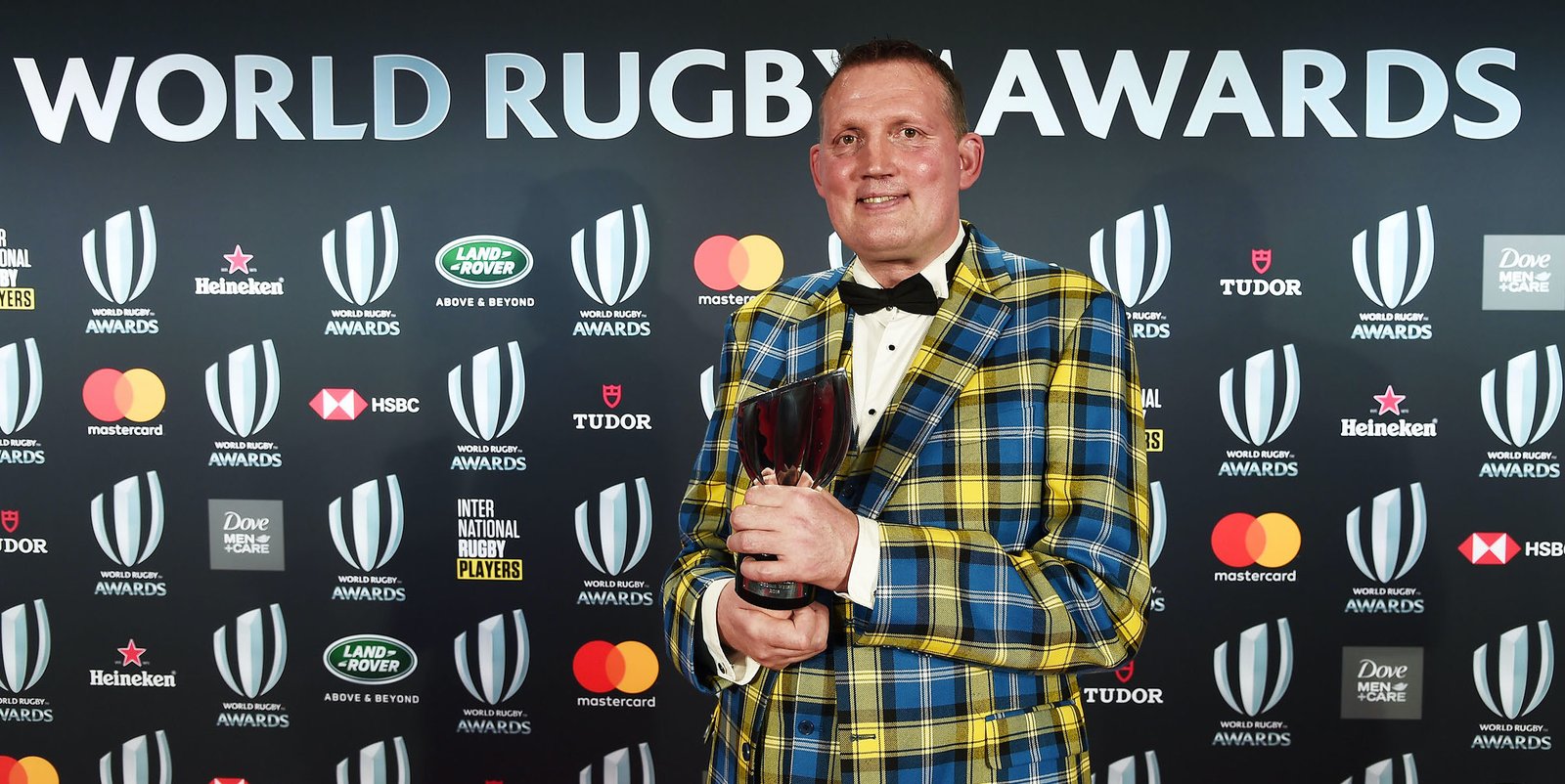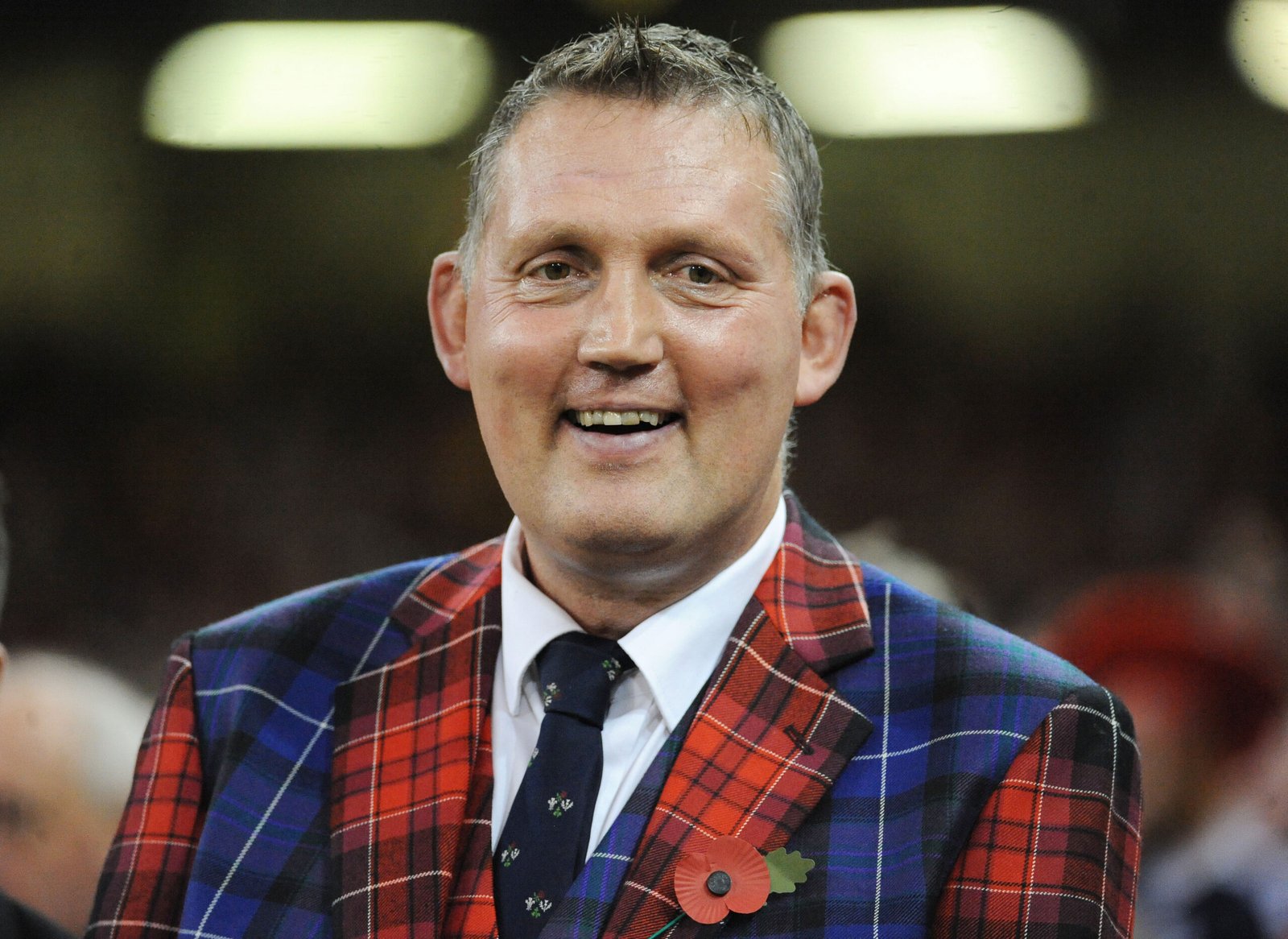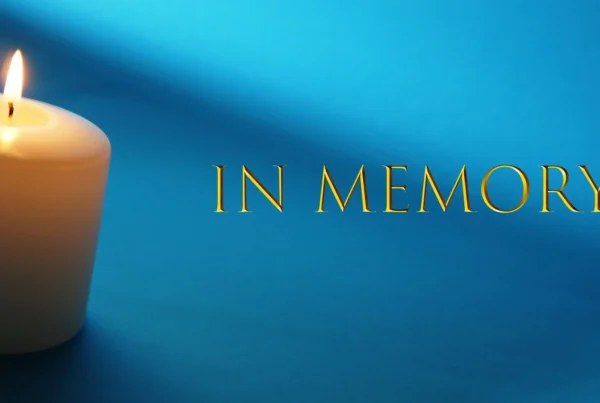Doddie Weir – A Winner and Inspiration
Doddie Weir was a friend to many and his passing on Saturday 26 November, 2022, six years after he was a diagnosed with Motor Neurone Disease (MND), leaves a huge hole in Scottish and sporting life. But sport in Scotland, and globally, can and should take much from his life as an inspiration.
He was a friend to the Observatory for Sport in Scotland as he was to so many thousands of people from all walks of life, charities and organisations because he was a Scot with that most wonderful of traits, to make everyone he met feel like he cared about them. Because he did. He was brought up the son of hard-working Jock and Nanny Weir on a farm in a rural part of the Scottish Borders, where people still say hello to strangers, and chat. He would attend the local primary school in Fountainhall, and would take part in many forms of sport, often encouraged by the nearby Stow Primary headteacher Derek Jones, and would develop into a fine rugby player at Stewart’s Melville and then under the tutelage of Jim Telfer and others at Melrose RFC.

Doddie Weir soaring against Wales during Scotland’s Five Nations Championship success in 1999. Picture by David Gibson (Fotosport UK).
George Weir became widely known across world rugby circles as the beanpole ‘Doddie’ after bursting into the Scotland squad at 19, famously described by the ‘Voice of Rugby’ Bill McLaren as looking like a ‘mad giraffe’ when on the charge. A skinny lad, who coaches sought to ‘beef up’, Doddie’s blend of good handling skills, understanding of the game and sheer will to outdo opponents proved a potent mix as he helped lead Melrose and Scotland teams to a fine haul of victories and titles through the 1990s.
It took a while for him to believe that he was worthy of playing for Scotland, so when he was selected for the British and Irish Lions he struggled to take it in. Yet, he would play a key role on the successful 1997 tour of South Africa, becoming one of the most popular players in a squad of 90s legends both on and off the field. Typical of how his life was rarely plain sailing, he was cruelly injured by a deliberate kick to his knee by a South African player, which severely injured ligaments and forced him out of the tour.
He returned to help Scotland to the last-ever Five Nations Championship title, in 1999 – his career also included two tries in one match against the All Blacks, which he didn’t mention much – and such was the warmth and affection for Doddie, created by his unique approach to life, to challenges, to socialising and seeking to ensure everyone around him had fun and laughter, his playing career ended back in his beloved Borders in 2004 with incredibly loyal followings by then across the world. It was typified quite close to home, at Newcastle Falcons, a club with which he had no links prior to 1997, but where he helped spearhead rugby’s shift into professionalism and would continue to MC pre and post-match hospitality up until his illness, alongside radio and TV commentating duties, and countless event requests across the world of rugby.
When he was diagnosed in 2016 with MND, however, Doddie’s desire to tackle the disease took the 6ft 7in ‘big man’ beyond sporting boundaries and deep into the hearts of the nation, the United Kingdom as well as Scotland. Conversations with Doddie after his diagnosis was confirmed revealed a return of the burning passions that once drove him to great heights, literally, on the rugby pitch. He was angry, furious, in fact, to discover that treatment for MND had not changed in more than 20 years and amounted to “being given tablets and told to go home and make your plans to die”. For someone who played the underdog in much of his sporting career, the idea of giving up hope simply did not compute.
Further investigations by him and his wife Kathy, discovered that a lack of research into the causes and effects of MND had meant no real progress in helping people to improve their quality of life never mind find a cure. While the media photographs and public engagements continued to see the fun, ever-smiling Doddie, behind the scenes a raft of medics, researchers, MND organisations and politicians began to understand what it was like to have been an Englishman, Welshman or All Black attempting to tackle Doddie on game day. Many, many uncomfortable conversations and slammed doors followed, as Doddie refused to accept platitudes, shoulder shrugs and often strongly worded statements that everyone was doing all they could.
“You just aren’t,” he would say, without apology. “And if I have to be the one telling you that, then I’ll be the one. I may not have long left on this planet, but I’ll create bloody hell to make sure those coming after me have a better chance of surviving this.” How strong and direct Doddie was in those conversations cannot be overestimated, and that is important to understand, as, while it genuinely upset leading consultants, it led to the birth of the ‘My Name’5 Doddie Foundation’ – the 5 being his Scotland shirt number. Doddie was rarely a captain as a player, but concerned at the pessimism he now encountered, he decided then to lead. He quickly found supporters among his closest friends and inspired them with the traits that had made him a special and widely respected player, winning 61 caps and Lions honours, through the past six years of a raging, phenomenal campaign. The tartan suits which he’d enjoyed for a laugh, became a deliberate ploy to attract attention to the MND campaign.
There can be few in the UK who don’t now know about MND, and how awful a disease it is, and probably few in Scotland who haven’t contributed to a fundraising pot now of £12m and still growing -which has not only funded research but helped make life a bit more bearable for others with MND. He remained at the heart of new, creative ideas to stir support, from sporting events to the ‘Doddie Clubhouse’, which anyone can join, and efforts to encourage people to be more active – January will see the launch of the latest global fitness effort where people can count how much they walk, jog, cycle or do other activity to support their ‘team’. That stemmed in part from Doddie discovering conflicting medical advice to MND patients – some saying not to exercise while others insisted exercise could help delay the onset of symptoms. Doddie was a firm believer in the values of sport, and while the fun and mental benefits of sport had always been the key driver to Doddie, now the physical benefits were foremost in his mind.
Underlining his persuasiveness – a smile often accompanied by a subtle rib dig – the former UK Prime Minister Boris Johnson and the UK Government responded to several appeals to replace rhetoric with money, and agreed to provide £50m to MND research. That was a ‘game-changer’ as Doddie put it, and the big man leaves us knowing that his hope born in 2017 of giving people with MND their hope of a cure has been achieved. It remains just that, hope, but that is a major step forward in just six years, and woe betide any politician in Downing Street who attempts to rein back on that funding promise.
Doddie has not been alone as the more oft-seen side to his character, the fun and jokes, life and soul of the party, and the ‘daft laddie’ part he played so well – in contrast to both his natural shyness and sharp brain – inspired an army of people to the MND cause, and encouraged others to use what fame or influence they had to get on board.
He had his rock Kathy for the past 25+ years, three sons who have been prepared as best anyone can for life without dad, and siblings and wider family and friends who took immense pleasure from being on Doddie’s side, and will continue the campaign not only to find a cure for MND but for sport to play a role in helping people live life to the full. Doddie certainly did that, so do not accept the suggestion that he ‘lost his battle’ with MND. He provided hope for millions of supporters as a rugby player and has given that to many more in recent years. He was a winner until the day he passed, and Doddie, those of us who watched and knew him, and the wider world have gained much as a result. Thank you, big George.
To learn more about the My Name’5 Doddie Foundation, visit: https://www.myname5doddie.co.uk/.
www. mndscotland.org.uk
David Ferguson







Thought Piece from Charlie Raeburn for Reform Scotland